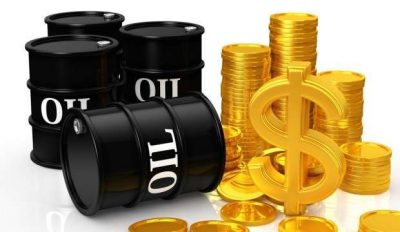Oil Price Hits 30-month High on OPEC’s Demand Rally Forecast
Brent crude, Nigeria’s oil benchmark, crossed the much-awaited $70 mark, hitting $71.33 at a point. West Texas Intermediate (WTI) rose as much as 3.8 per cent to $68.87 a barrel, a level it has failed to hold for a sustained period since 2018.
However, the climbing oil price could worsen Nigeria’s fiscal crisis as it portends the federal government spending more to keep the pump price of petrol stable at the current N162-N165 price band in view of the non-conclusion of talks with labour and other stakeholders on the need to float petrol cost in conformity with the policy on the deregulation of the downstream sector.
The new price levels were driven by expectations of growing fuel demand during the summer driving season in the United States as OPEC+ agreed to boost output and strong usage indications coming from China.
The cartel, according to information garnered from the meeting, pegged Nigeria’s July’s reference production at 1.829million bpd, the country’s adjustment was put at 250,000 bpd, while required output for the month is expected to be 1.579 million bpd.
OPEC+ decided in April to return 2.1 million barrels per day (bpd) of supply to the market from May to July, anticipating rising global demand despite the high number of coronavirus cases in India, the world’s third-largest oil consumer.
Traders also continue to follow the progress of negotiations between Tehran and world powers to revive the 2015 nuclear agreement, paving the way for increased oil supplies from Iran.
At the meeting, OPEC+ stuck to its plan to hike oil output in July, pressing ahead with an increase of 841,000 barrels a day in July, following hikes in May and June.
“The demand picture has shown clear signs of improvement,” Saudi Energy Minister, Prince Abdulaziz bin Salman, said as the ministerial meeting started. His Russian counterpart, Alexander Novak, also spoke of the “gradual economic recovery.
If OPEC+ stays on course, and Iran oil’s comeback is delayed, that should get WTI oil solidly above $70 a barrel, while Brent which has already exceeded $70 may then try to establish contact with the $75 region.
The surge was hovering at a level not seen since 2018 as August Brent contract rose earlier by $1.82, or 2.6 per cent, to $71.14 a barrel, a level not seen since November 2018 when measured on a continuous basis.
OPEC Secretary-General, Dr Sanusi Barkindo, who spoke at the 30th Meeting of the Joint Ministerial Monitoring Committee (JMMC), said latest projections showed Gross Domestic Product (GDP) growth of 5.5 per cent in 2021, up from 5.4 per cent at the last meeting.
He stated that the projections for oil are largely unchanged from last month, as demand is expected to grow by 6 mb/d to around 96.5 mb/d on average for the year, an increase of 6.6 per cent.
He stated that the market outlook for later this year looks especially promising, while anticipating that demand will surpass 99 mb/d in the fourth quarter, which would put OPEC back in the range of pre-pandemic levels.
Barkindo, who warned against complacency, stated that non-OPEC liquids production is now forecast to grow at a slightly slower pace than expected last month, rising by around 700,000 b/d in 2021 to an average of 63.6 mb/d.
According to him, the actions of the Declaration of Cooperation (DOC) have continued to support the rebalancing process, and have helped reduce the global supply by more than 2.9 billion barrels since May 2020.
“However, there continues to be significant overproduction by some of the participating countries. The overproduced volumes need to be accommodated to achieve the goals we have set for ourselves.
“In this regard, the 15th OPEC and non-OPEC ministerial meeting agreed to extend the very generous compensation period for overproduced volumes until the end of September 2021.
“Our continued contributions to sustainable oil market stability depend upon all participants achieving 100 per cent conformity and, where necessary, working dutifully to compensate for overproduction,” he said.
However, the meeting welcomed the positive performance of participating countries in the DoC, as overall conformity to the production adjustments was 114 per cent in April.
“In view of current oil market fundamentals and the consensus on its outlook, the meeting reconfirmed the existing commitment of the 10th OPEC and non-OPEC ministerial meeting in April 2020, amended in June, September, and December 2020, as well as in January and April 2021.
“The agreement was to gradually return two million barrels a day (mb/d) of the adjustments to the market, with the pace being determined according to market conditions,” OPEC stated in a release after the meeting.
It noted that compensation plans should be submitted in accordance with the statement of the 15th OPEC and non-OPEC ministerial meeting and reconfirmed the decision on production adjustments for July as well as schedule its next meeting for July 1.


